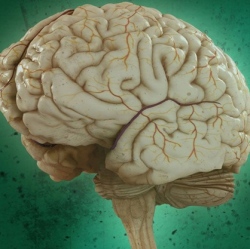
The stress of growing up poor can hurt a child’s brain development starting before birth, research suggests, and even very small differences in income can have major effects on the brain. Researchers have long suspected that children’s behaviour and cognitive abilities are linked to their socioeconomic status, particularly for those who are very poor.
The reasons have never been clear, although stressful home environments, poor nutrition, exposure to industrial chemicals such as lead and lack of access to good education are often cited as possible factors.
In the largest study of its kind, published on 30 March in Nature Neuroscience1, a team led by neuroscientists Kimberly Noble from Columbia University in New York City and Elizabeth Sowell from Children’s Hospital Los Angeles, California, looked into the biological underpinnings of these effects.
They imaged the brains of 1,099 children, adolescents and young adults in several US cities. Because people with lower incomes in the United States are more likely to be from minority ethnic groups, the team mapped each child’s genetic ancestry and then adjusted the calculations so that the effects of poverty would not be skewed by the small differences in brain structure between ethnic groups.
The brains of children from the lowest income bracket, less than US$25,000, had up to 6% less surface area than did those of children from families making more than US$150,000, the researchers found.
In children from the poorest families, income disparities of a few thousand dollars were associated with major differences in brain structure, particularly in areas associated with language and decision-making skills. Children’s scores on tests measuring cognitive skills, such as reading and memory ability, also declined with parental income.
